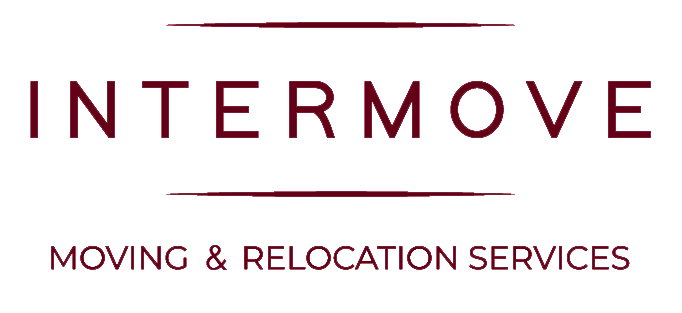Moving your life overseas is not a picnic, but considering several factors before relocating yourself certainly takes off the pressure from your important move.
Choosing whether or not to move abroad is often a huge step in your life. However, regardless of the reasons a person has for making the change, it’s important to put time into planning how to cope with most important issues before embarking on the adventure.
If you’re not sure where to start, this short text covers some of the main things to consider and its goal is to help you get those gears in motion and begin making your new dream life a reality.

Financing your move: are you are about to find a work or receive a pension
One of life’s most important considerations is getting your finances in order. If you’re planning a move overseas you need to know how you’re going to support yourself. One of the most important things to look into is how the cost of living in your destination country compares to where you live now.
It can feel like a stressful subject to get to grips with, but a little research into the area you are interested in moving to could go a long way. Note data down of average food costs, rent or mortgage costs and utility expenses and make a tally of the results. If you’re going to need a job overseas you also need to research the local job market to make sure you’re not moving somewhere where it’s extremely difficult to find work forriner. Does the area have sectors that appreciate the language you speak? Is it welcoming to immigrant workers? Is the unemployment high?
For those looking to retire abroad, it’s important to have your finances in order to live comfortably. Being able to access your pension with ease is the key of it. If you’re planning to transfer your pension overseas, you may wish to look into the most cost-effective means of going about this.
Some countries have a special relationship with each other, so in regions like the US, European Union and Jamaica you may be able to benefit from existing state pension systems.

Buying, renting and selling property
The next most important area to look into is where are you’ll be living, whether you plan to rent or buy and what is your plan for yours previous property.
Some may choose to use their previous residence as a holiday home, but this would of course require being in a stabile financial position. An alternative to this is renting out your previous residence, which you can do through an estate agent or by yourself. This is a common choice for first-time relocation, as some want the security of having a place to return to in case they decide the expat life is not for them. However, you may find that you need to sell your existing property to finance your relocation. If that is the case, getting your property listed long before you hope to move is very important, as is having a contingency plan in place if your property sells more quickly than you expected, or fails to sell.
If you are not in the position where you are not able to afford to buy a foreign property outright you, may want to look into your options for getting a domestic/foreign mortgage, or a loan in the country you plan to move in. Contacting solicitors and estate agents near your destination is essential, as is being in contact with industry experts who can help you navigate issues like the language barrier.
Tax issues also need to be addressed to. Tax agencies will help you with tax requirements for leaving the nation and point you in the right direction for getting yourself set up in the destination country.The sooner you get it sorted the quicker it’ll be out of the way!
Healthcare

As you move to a new country with new health risks, how you’re going to look after yourself in the event of sickness is another key requirements. Some nations provide basic state healthcare to expats but many will require you to get private health insurance. This option may be particularly important to those who require specialist treatment, and could be valuable even in a nation with basic state healthcare.
Some medication may no longer be available to you in your country of choice, and as a result it’s important to explore alternatives or make sure the place you’re moving to can accommodate your long-term health needs. If it doesn’t, you may need to arrange stocking up on medication with your old health distributer every few months.
Other basic health concerns include how the change in food might affect you and whether environmental factors need to be taken into consideration. Will you need to change your dress style for a change in climate? Or to change your diet to grow accustomed to a new set of dishes? A little bit of research into these areas can make it far easier to settle in a new country.

Currency exchange and currency brokers
Depending on your circumstances, you will probably need to send money overseas before you move, and potentially on a regular basis once you arrive. For example, a private pension paid into your bank of origin bank account would require those funds to be exchanged on a monthly basis.
While using the currency exchange services of a well-known high street bank is an option, you may find that they levy transfer fees and offer less competitive exchange rates than some other providers. It could prove very usefull to look into the services provided by currency brokers and do a rate comparison to see who can give you the best deal.
With some currency brokers you can benefit from having access to a range of services, from fixing a favourable exchange rate for up to two years in advance of a trade to setting a minimum rate at which you’re happy for your transfer to be made. They may have advisors to help you along the way and provide data into the latest exchange rate movements and currency trends.
If you plan to make a large currency transfer, looking into your options early on could see you benefit on significant savings.

Languages, education, pets and more
Now that you have a grasp of some of the main financial issues you need to consider, it’s time to look at some of your more general requirements.. Everyone is certain to have their own needs, which have to be met in order for an overseas relocation to be successful, and it’s worth making a note of all the points you need to tick off your list before you can more abroad with confidence.
For those moving abroad with children, considering their educational situation is likely to be a priority, as is making the move during a period that would disrupt their education the least. This means researching the education system in your preferred moving destination. Is it easily accessible to expats? Is it affordable for you and will your children fit in despite a potential language barrier?
And speaking of a language barrier, having some basic understanding of the language spoken in your new home would certainly help you settle in. Expecting the populace of your adopted nation to be able to understand you without making any effort to pick up the native tongue may alienate you and cause you to feel like a permanent tourist in what is supposed to be your new home and your new life. Even understanding the basics of how to communicate in a new language can go a long way to helping you eventually learn the rest, so it’s well worth investing your time in this area.
There are of course many other concerns you may have, such as if you can take your pets with you and how to transport them safely. Soon-to-be expats may also want to look into local services like transport, mobile phone usage and internet access.
After taking the time to acquaint yourself with your new home, you’ll be in a far better position to understand what to expect from your new life.
All that’s left now is to wish you best of luck with your life-changing jorney!


